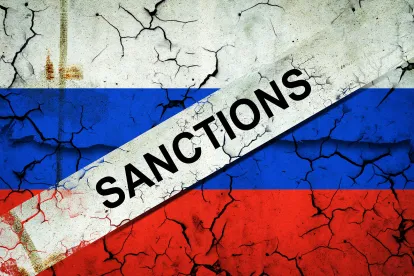WHAT IS IT?
On 15 March 2022 the Economic Crime (Transparency and Enforcement) Act 2022 (the Act) received royal assent, having been expedited through parliament as part of the United Kingdom’s response to Russia’s invasion of Ukraine.
The Act makes three key changes. Namely, it:
-
Changes the threshold for failure to comply with UK financial sanctions;
-
Reforms the Unexplained Wealth Order (UWO) system; and
-
Introduces a new register for overseas entities owning property in the United Kingdom.
Whilst the changes to the UWO system and the introduction of the overseas ownership registry will be of significance to many entities active in the United Kingdom, it is the changes to the sanctions regime and their role in facilitating the United Kingdom’s response to the situation in Ukraine which were the driving force behind this fast-tracked legislation. The changes to the UK sanctions regime are discussed further below.
WHAT CHANGES DOES IT MAKE TO UK FINANCIAL SANCTIONS?
The New Test for Breach of Financial Sanctions
Under the pre-existing sanctions regime, where the Office for Financial Sanctions Implementation (OFSI) found, on the balance of probabilities, a breach of UK financial sanctions, it has the ability to impose civil penalties up to the greater of (a) £1,000,000, or (b) 50% of the value of the breach.1 A failure to comply with UK financial sanctions is also a criminal offense subject to fines and imprisonment. The Act does not amend the criminal sanctions framework.
Previously, to impose a civil financial penalty, OFSI had to be satisfied, on the balance of probabilities, that the person committing the breach knew, or had reasonable cause to suspect, that their conduct was in breach of the financial sanctions.
The Act removes this knowledge requirement and replaces it with strict liability, whereby the intent or knowledge of the person committing the breach is not relevant to OFSI’s power to impose a civil penalty.
This change increases the risk of OFSI imposing civil penalties for breaches of sanctions by removing the hurdle that OFSI has to overcome to impose a monetary penalty. It will no longer be a defense for persons to argue they did not know or suspect a sanctions breach.
OFSI’s New Power to Publicly Shame
The Act also empowers OFSI to make public announcements that identify breaching parties, even where no monetary penalties are imposed.
Whilst questions of knowledge may remain relevant to any criminal proceedings borne out of breach of financial sanctions, they will no longer serve as a bar to monetary penalties or such adverse publicity.
Fast-Tracked Ministerial Designation Powers
The Act also shortens the process for the UK government to make designations of sanctioned persons, with the introduction of an ‘urgent procedure.' Under the urgent procedure, the appropriate minister can designate a person where (a) they are already subject to similar sanctions in the United States, European Union, Australia, or Canada, and (b) the minister believes it is in the public’s interest.
This new urgent procedure has already been put to use as the UK Government looks to align its sanctions response with allies.
WHAT NEXT?
As the United Kingdom’s financial sanctions regime continues to develop, entities and individuals must ensure they remain up to date with their obligations to ensure compliance with applicable requirements.
ENDNOTES
1 For example, see our alert here regarding the £36,393.45 fine imposed on Clear Junction Limited in February.





 />i
/>i

